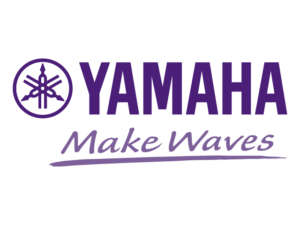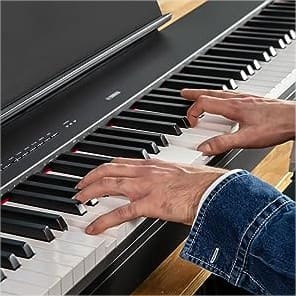88-key piano – how to choose the best one?
The 88-key piano is a type of keyboard that comes up very frequently in discussions among musicians. And there’s good reason for this popularity – it features the exact same number of keys as a real acoustic piano. This significant advantage makes it incredibly popular among pianists of all skill levels across America.
However, with such an extensive selection available in today’s market, finding your ideal model is no easy task. Fortunately for you, this comprehensive guide will help you navigate through your options! First, I’ll review the key strengths and advantages of this type of instrument, then present you with the top-rated models currently dominating the market. All of this information will finally enable you to confidently choose your perfect 88-key piano!
Whether you’re a classical pianist seeking authentic key feel, a jazz musician needing full range expression, or a beginner ready to invest in a serious learning instrument, understanding the benefits of full-size digital pianos will help you make an informed decision that supports your musical goals for years to come.



Why choose an 88-key digital piano?
By deciding to opt for an 88-key piano, you’re making a smart choice that comes with numerous advantages and surprisingly few drawbacks. Let’s take a closer look at all these important factors to help you understand exactly what you’re getting with this investment!

✅ Key strengths
What are the main strengths of a 88-key piano? There are many, but here are the most important benefits you’ll enjoy:
Complete key range matching traditional pianos: The first major advantage of this type of instrument is undoubtedly its full 88-key range! You’ll have access to the maximum number of keys available on any piano, allowing you to play any repertoire without being restricted by passages that are too low or too high. This complete range ensures you can tackle everything from Chopin’s delicate high notes to Rachmaninoff’s thunderous bass passages.
Superior overall quality standards: Most digital pianos with fewer than 88 keys target beginners and prioritize affordability over performance. In contrast, a 88-key piano typically features significantly more advanced options, along with better key action and superior sound quality! Manufacturers invest in higher-grade components, more sophisticated sound engines, and premium materials when designing full-size models.
Perfect for pianists at every skill level: Whether you’re a beginner, intermediate, or advanced player, choosing this type of model will be highly beneficial! You can select an entry-level 88-key model to give beginners a complete keyboard from day one, or opt for a high-end version that experienced pianists will absolutely love to play with passion and precision.
The bottom line: A 88-key piano delivers exceptional versatility to all users, making it the smartest long-term investment for serious musical development. But could there be any drawbacks to consider?
❌ Potential drawbacks
Don’t worry – there are very few disadvantages to choosing an 88-key piano, but you should still pay attention to certain considerations.
Heavier and bulkier instrument: Naturally, a model with more keys will inevitably carry more weight and take up more space! An 88-key piano typically weighs 30-60 pounds more than compact models and requires a larger footprint in your home. However, if you don’t plan on moving your piano frequently, this is an aspect you can easily overlook, especially considering the substantial benefits you gain.
Higher price point than smaller models: Of course, a 88-key piano will cost more – that’s simply logical! More keys to manufacture, additional materials to include, and often enhanced features all contribute to higher pricing. Budget-conscious buyers will find that 61-key digital pianos are much more affordable, though they sacrifice significant functionality and long-term versatility.
Space requirements: Full-size digital pianos require dedicated space in your home, unlike compact models that can easily fit on a desk or be stored away. You’ll need to plan for both the instrument itself and a proper bench or seating arrangement.
The reality check: These limitations are relatively minor when weighed against the substantial advantages of owning a complete, professional-grade instrument. For most serious pianists, the benefits far outweigh these practical considerations.
Now that you know more about both the advantages and limitations, let’s find out the 88-key models!
Which 88-key digital piano should you choose?
If your decision to purchase an 88-key piano is final, you’ll need to pay attention to several key factors. Indeed, there are models available for every expectation and especially for every budget, which means that your choice will largely depend on your available funds. But to make the task easier, I’ve sorted all the models below by price range. I know, I’m pretty helpful like that! For each digital piano featured, I’ve written a comprehensive review that you can find below each model by clicking on their associated button.
Entry-level 88-key digital piano
In the budget-friendly category, you’ll find the Rockjam 88, the Alesis Recital, and the Roland GO-88P. All three are specifically designed for beginners. These models all feature headphone inputs and external device connectivity, but the Roland GO-88P scores extra points thanks to its Bluetooth wireless connection. Being primarily intended for beginners, all three models include a built-in learning app, which is extremely convenient for accessing educational content easily.
Of course, their sound quality and key feel won’t be the most impressive. They’re far from bad though – don’t worry – the semi-weighted action on the Alesis Recital is actually quite well-executed. However, you should keep in mind that these models won’t satisfy an experienced pianist’s needs.
The Roland GO-88P is, in my opinion, the 88-key piano that performs best in this category. All three models will offer excellent value for money.
Mid-range 88-key digital piano
We’re stepping up a notch with the Casio CDP-S360, the Yamaha P-225, and the Roland FP-30X! These three musical instruments deliver excellent sound quality and key feel. When it comes to touch response, the Roland FP-30X clearly wins this battle. It also features built-in Bluetooth connectivity, just like the Casio CDP-S360, which unfortunately the Yamaha P-225 lacks. Another interesting feature is the sustain pedal included with delivery for all three digital pianos. This saves you from having to order one separately, and you know this piano accessory is absolutely essential!
The Roland FP-30X 88-key piano is, in my opinion, the clear winner of this trio. The Casio CDP-S360 performs very well too, and while the Yamaha P-225 may lag behind in certain aspects, it makes up for it with its rock-solid reliability. No matter which of these three models you choose, they’ll be remarkable companions for many years to come.
High-end 88-key digital piano
Here we are at the top of the rankings with these two powerhouses! These models immediately make an impression with their exceptional sound quality. They also come with 3 pedals and a solid stand, as these are console digital pianos. This feature makes them much more imposing and prestigious than portable versions. Of course, these 88-key piano models feature key action that perfectly mimics that of an acoustic piano. Add to that adjustable weighted touch on the Korg C1 Air, and you have musical instruments that are close to perfection.
You can absolutely go with any of these with complete confidence. The Yamaha YDP-145 may have slightly fewer options, but having personally owned one, it’s exceptionally reliable and remarkably effective. Keep in mind that regardless of which of these three models you choose, you’ll own a digital piano with exceptional performance that’s suitable for all pianists.
Let’s sum up
That concludes this 88-key piano buying guide. If you choose one of these models, you can be certain you’re getting a versatile instrument that allows for great musical expression. Make your choice wisely based on your playing level and budget. In any case, you’ll only be making smart purchases by selecting models from this curated list!
I hope you’ll be able to find exactly what you’re looking for thanks to this article. If not, don’t hesitate to browse this site which offers numerous other guides, reviews, and advice. And if these models are too expensive for your taste, check out the entry-level digital pianos that could be perfect for a beginner pianist!



